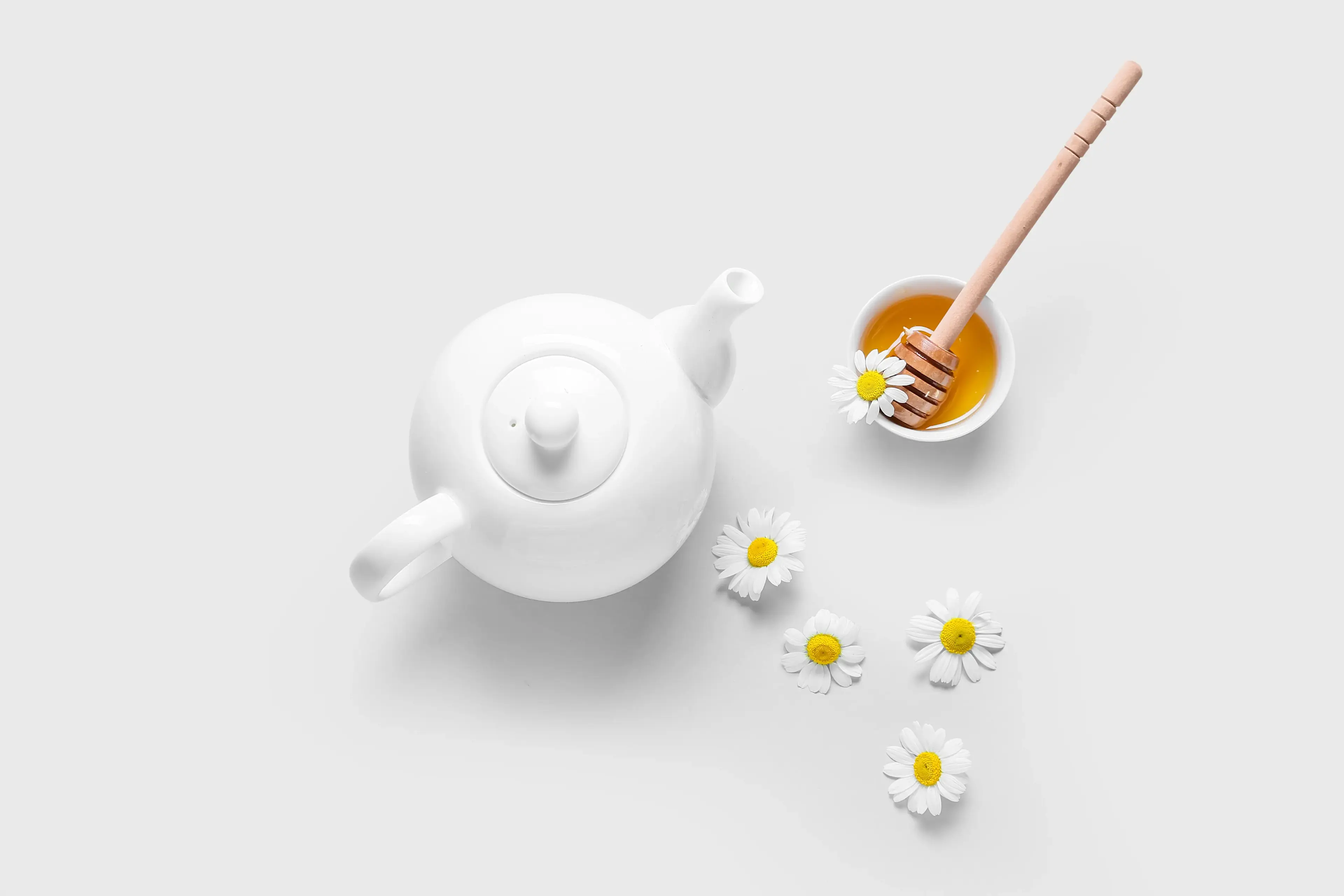Chamomile, a gentle and aromatic herb with a long history of traditional use, is known for its calming and healing properties. Scientifically referred to as Matricaria recutita or Anthemis nobilis, chamomile is known for its sedative, anxiolytic (anxiety-reducing), and antispasmodic (muscle spasm relief) effects (Gardiner 1999). Its primary active constituents—chamazulene, apigenin, and bisabolol—contribute to its wide array of benefits, making it a valuable addition to a parent's natural health toolkit (Gardiner 1999).
Chamomile for Coughs and Colds
Supporting Recovery with Chamomile
When your little one is battling cough or cold symptoms, chamomile can be a comforting and supportive remedy. Its antispasmodic effects can help ease discomfort, allowing your child to get the rest they need (Gardiner 1999). The herb's anti-inflammatory properties can also alleviate some of the symptoms associated with the respiratory tract, making it easier for your child to recover (Gardiner 1999).
How Chamomile Works During Illness
Chamomile's active ingredients, such as apigenin, work by helping to promote muscle relaxation and reducing restlessness . This can be especially beneficial for children who are experiencing sleep disturbances due to their illness (Huda, et al. 2020). By helping your child relax and fall asleep more quickly, chamomile can ensure they get the restorative sleep needed to support their immune system and recover faster (Huda, et al. 2020).
Enhancing Sleep and Rest for Your Child
Improving Sleep Quality
For parents, ensuring that their children get adequate rest is a top priority, especially when they are feeling unwell. Chamomile has been shown to significantly improve sleep quality in children, with 81.8% of participants in a study experiencing better sleep (Huda, et al. 2020). The calming effects of chamomile, particularly its ability to reduce nervousness and restlessness, can help your child fall asleep more easily and stay asleep longer (Huda, et al. 2020).
Relaxation and Mood Regulation
Calming the Body and Mind
Chamomile is known for its ability to increase calmness, which can be incredibly helpful for children who are feeling anxious or stressed, especially when they are sick (Moss, et al. 2016). In fact, Health Canada has recognized chamomile’s calming benefits for Children as young as two years of age (Health Canada 2018). The herb's anxiolytic effects, can help your child feel more at ease and less distressed (Gardiner 1999). This can make the recovery process more comfortable and less overwhelming for both you and your little one.
Integrating Chamomile into Your Routine
To integrate chamomile into your child's routine, consider adding a cup of chamomile tea to their bedtime ritual. This can help create a calming environment and set the stage for a good night's sleep (Huda, et al. 2020). Chamomile can also be used in a warm bath or as a gentle massage oil, further enhancing its relaxing properties (Rafii, et al. 2020). By incorporating chamomile in these ways, you can support your child's overall well-being and help them manage the symptoms of coughs and colds more effectively.
Conclusion
Chamomile is a versatile and natural herb that can offer a range of benefits for children, from soothing cough and cold symptoms to helping improve sleep quality and promoting relaxation. Its anti-inflammatory, antimicrobial, and anxiolytic properties make it a valuable addition to a parent's health arsenal. By using chamomile safely and thoughtfully, you can help your child feel better and recover more quickly, ensuring they are well-rested and ready to tackle the day ahead.
Before adding chamomile to your wellness routine, always consult your doctor or healthcare professional.
